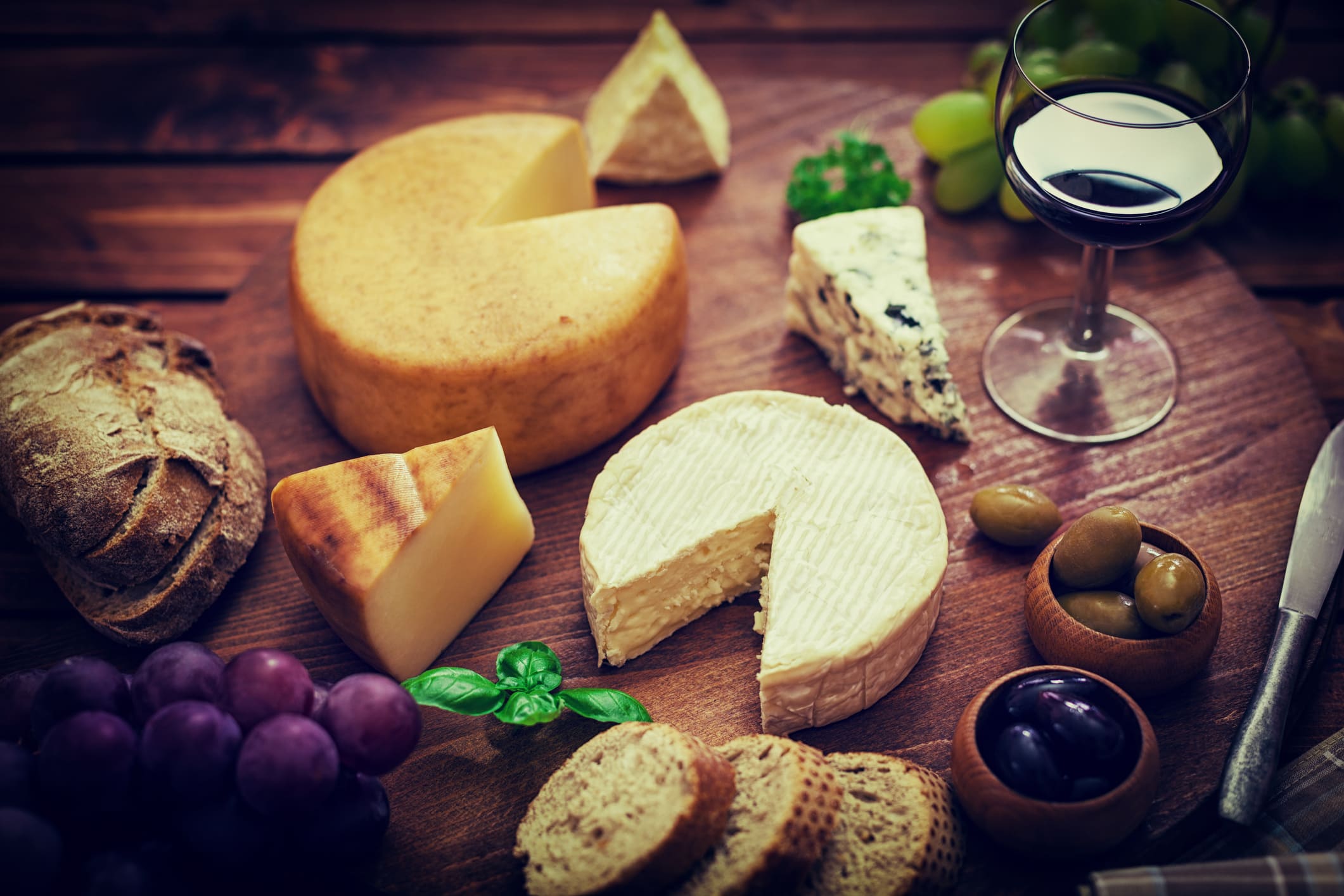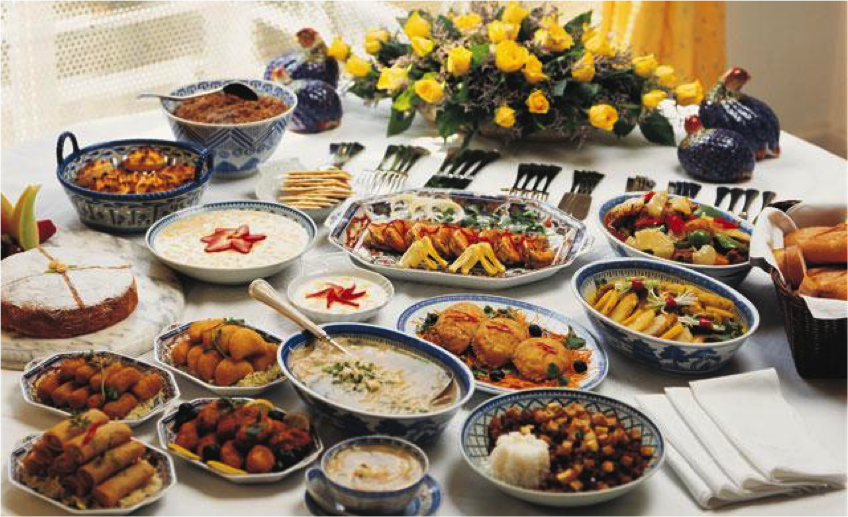
history, gastronomy and natural beauty elcw.ca
The first restaurant. The first restaurant as we know it today opened in Paris in 1765 on the Rue des Poulies, today the Rue du Louvre. On the front of the shop is engraved the Latin phrase from.

The History of Molecular Gastronomy
Food history is an interdisciplinary field that examines the history and the cultural, economic, environmental, and sociological impacts of food and human nutrition.It is considered distinct from the more traditional field of culinary history, which focuses on the origin and recreation of specific recipes.. The first journal in the field, Petits Propos Culinaires, was launched in 1979 and the.

Le Paris gastronomique Le Magazine ALL
The evolution of world cuisines Ancient Rome. The Roman Empire had a fully developed imperial cuisine that drew on foods from all over the known world. Scores of Roman food preparations were passed down in the ancient cookbook colloquially known as Apicius, one of the earliest cookbooks in recorded history.The book was named after the famous Roman merchant and epicure Marcus Gavius Apicius.

Initiation Masterclass The Art of French Gastronomy (***)
Summary. Since the 1970s, historical studies of food in particular cultures have emerged as a new field, "culinary history.". Culinary history studies the origins and development of the foodstuffs, equipment, and techniques of cookery, the presentation and eating of meals, and the meanings of these activities to the societies that produce them.

Lot 360 Gastronomy. A large collection of early 20th
The Food Timeline was created and maintained solely by Lynne Olver (1958-2015, her obituary Heritage Radio interviews Food Timeline editor (2013). Since we launched in March 1999, The Food Timeline's scope has grown from a single page with a sprinkling of links to 70 web pages offering a wealth of historic information, primary documents, and.

History, Culture and Gastronomy Macanese cuisine
The history of gastronomy until the middle of the seventeenth century is marked by the practice of tempering the dishes with a gigantic amount of spices, which, because they are expensive and rare, were true synonyms of luxury and wealth. But this exaggeration in the use of spices made the dishes unpalatable.

【送料無料キャンペーン?】 The Turkish Kitchen Discover the Food and Traditions of an Ancient C ia.uncaus
molecular gastronomy, the scientific discipline concerned with the physical and chemical transformations that occur during cooking. The name is sometimes mistakenly given to the application of scientific knowledge to the creation of new dishes and culinary techniques. The scientific discipline—which was introduced under the name molecular and.

French gastronomy throughout the centuries
Gastronomy, the art of selecting, preparing, serving, and enjoying fine food. Gastronomy is grounded in relationships between food, culture, and tradition. Through the ages gastronomy has proved to be a stronger cultural force among the peoples of the world than linguistic or other influences. The

Molecular Gastronomy The Food Science! PEAKLIFE
The history of food, long derided as an amateur's avocation, has finally won professional respectability based on a generation of high-quality scholarship. The defensive justifications for studying food often given by the field's pioneers, many of whom labored in obscurity at provincial colleges and universities, has given way to a new self-confidence and recognition. 1 Food matters, not.

Molecular Gastronomy Foto de stock Getty Images
American Gastronomy: New England (Northeast) The New England region of the United States, comprised by the states of Connecticut, Massachusetts, Vermont, Rhode Island, New Hampshire and Maine, is located in the country's northeast corner. As one of the early English settlements, this area has a long and storied history of culture and cuisine.

Politismos eMagazine The unique foods of Greece and their health benefits Tahini (Sesame butter)
To reduce gastronomy to "eating well" is a twofold error: first, because this definition implicitly accepts the common belief that the history of nutrition—economy and subsistence—and the history of gastronomy—culture and pleasure—are distinct subjects; and secondly, because it only covers a small, and perhaps the least noble, part.

5 Facts on Molecular Gastronomy
The Food Timeline: history notes--national gastronomy. [NOTES: (1) This book offers 100 recipes from 60 countries. The 1964 edition. Researching the culinary history of a particular country involves more than identifying traditional foods in current cookbooks. What people eat in all places and times depends upon seven key factors:

Molecular Gastronomy Exploring the Science of Flavor (Arts and Traditions of the Table
The domestication of grains such as sorghum, barley, wheat, corn, and rice created a plentiful and predictable food supply, allowing farmers' wives to bear babies in rapid succession—one every.

World Sustainable Gastronomy Day What is it, Importance, and History
The history of world gastronomy to the present offers a multidisciplinary vision of how humans have varied their way of feeding from prehistory until today. From being a purely survival action, it has reached a time when gastronomy has become, for many, an art. In the first moments of history there was a fundamental event for further.

Gastronomy 👌 What is gastronomy, history, importance, types and examples 🔥 Culture YouTube
Between 2012 and 2018, gastronomy tourism began to attract mainstream interest as its exposure in social media, peer review sites, food documentaries, and television and online culinary and travel.

molecular gastronomy History, Theory, Techniques, & Facts Britannica
This week, we're putting the focus on French gastronomy as we spare a thought for France's restaurant owners, staff and caterers, who are struggling through.